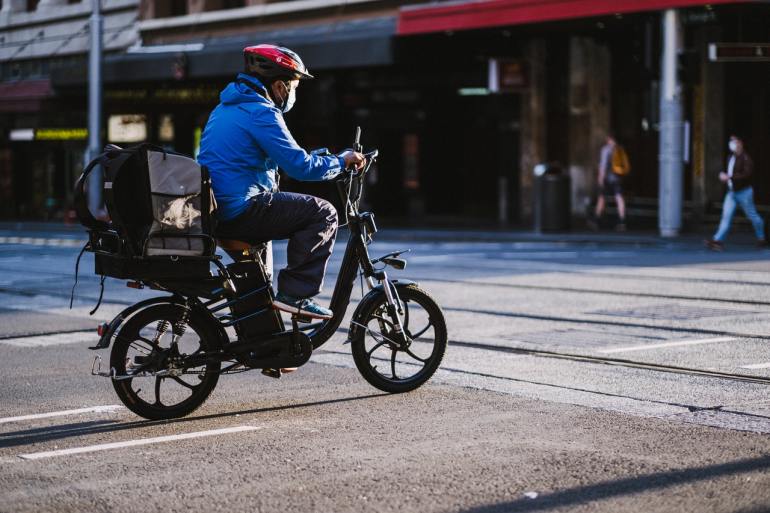Companies use a variety of digital apps to remotely track their employees during working hours, but a lot of questions hover about the limits of employer control?
In a report published by the French newspaper Le Figaro, writer Anne Bodesco says that some applications allow companies to access employee computer settings and obtain data including geographical location and several other details.
"Companies are currently using all of these solutions to monitor the movements of their employees," said Caroline Russo, an analyst at GetApp, a software selection consultancy.
For example, delivery companies use apps to track their employees and record their field trips, and security companies use them to ensure that their customers are not in trouble.
Delivery companies use apps to track their employees and record their field trips (pixels)
Other employers have relied on these systems to make it easier to pay for travel expenses or customer bills and measure salespeople's mileage, while others have used them to closely monitor team movements or work time.
But what are the legal limits allowed in these cases?
Legal guarantees
“Geolocation tools can only be used if employees and their representatives are informed in advance of the means used and their purpose,” says Meriel Parenti, an attorney at Ashurst law firm.
The legal expert in the field of computers, Denis Jacobini, believes that the tools used should match the desired goals, explaining that "the use of the geolocation system in order to measure work time, for example, is not allowed, because there are other tools that are more suitable to do so." .
Freedom to disconnect
When a company installs a geolocation system, the frameworks for its use should be defined.
In this context, Parenti explains, "If a company's device has a geolocation system installed, the employee should be able to turn it off when they use their car or phone for personal purposes."
The employer is also prohibited from determining the geographical location of the employee outside of work time.
“Companies are not allowed to keep geolocation data for more than two months,” Parenti notes, and the employee has access to the data the company has obtained.
Some companies use a variety of digital applications to track their employees during remote working hours (pixels).
Staff concerns
GitApp polled more than 250 employees who were monitored by a GPS app, and a third of them said they did not know the reasons for imposing such a mechanism.
For about 26% of those who participated in the survey, this mechanism aims to measure working time, which is illegal, and a third of them were unable to see the data obtained by their companies.
But employees don't just look at the downsides, and Caroline Russo explains that "21% feel reassured because they are in a dangerous profession, and 20% say they work with greater commitment."
But will these apps allow employees to work in places other than their homes?
Parenti believes that “the employer cannot stop it. If such an issue is not addressed in the teleworking charter, employees can work remotely from anywhere they want.”

